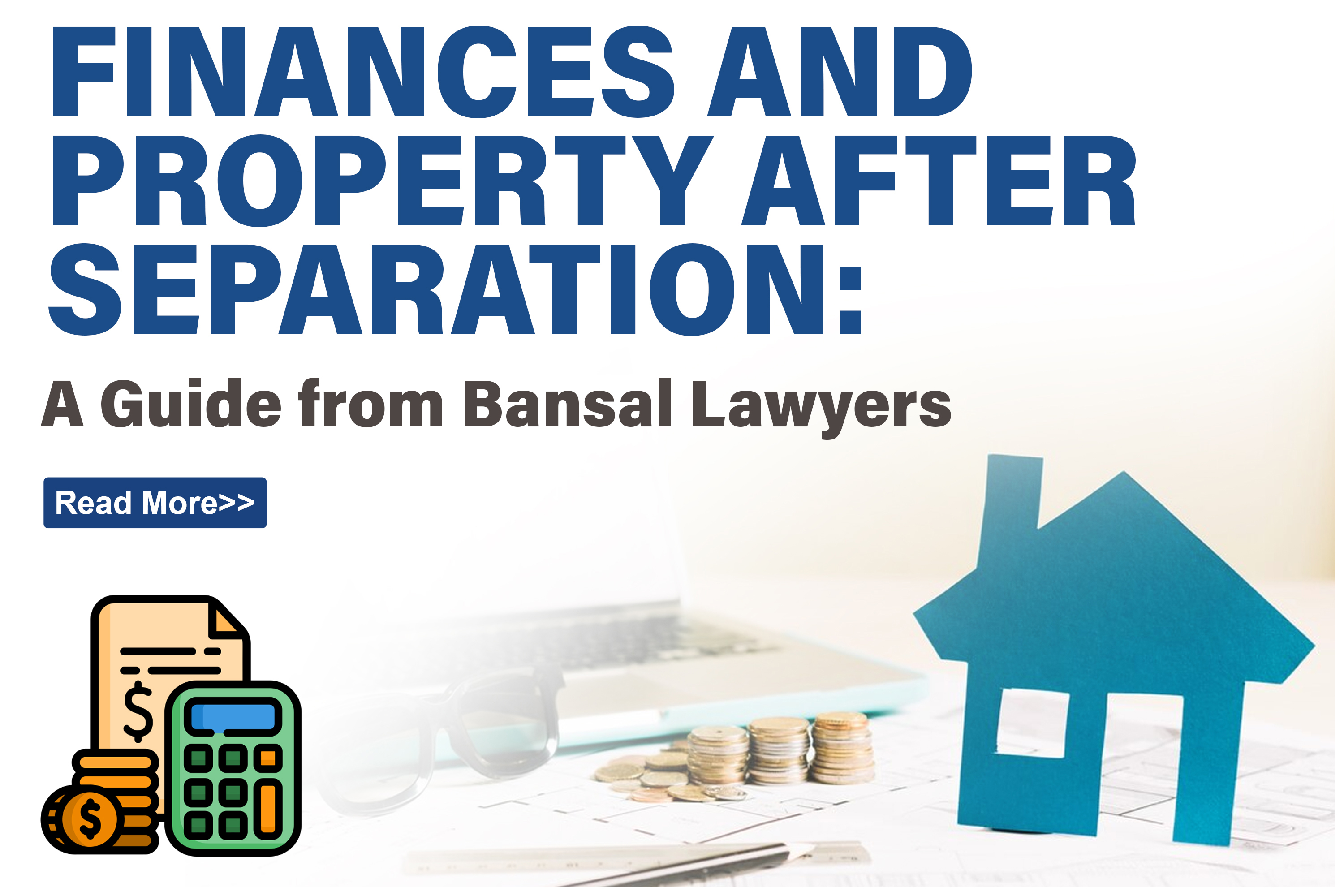Divorce Lawyers in Melbourne Australia – Complete Guide for Couple
Jan 31, 2026

When a relationship comes to an end, whether through divorce or the breakdown of a de facto relationship, one of the most complex issues to resolve is how to divide property, finances, and responsibilities. If you’re facing this challenge, understanding the legal processes and your rights is crucial to ensuring a fair outcome.
At Bansal Lawyers, we know that these financial matters can be overwhelming, which is why we’ve put together this guide to help you navigate the key steps involved in dividing property and resolving financial support issues after separation.
When a relationship ends, several financial matters need to be addressed, including:
If you and your former partner can agree on how to divide everything, you can formalise it through Consent Orders or a Financial Agreement. This process can save you time, stress, and money by avoiding the need for court involvement.
But if you can’t agree, don’t worry! There are alternative solutions like mediation or other forms of alternative dispute resolution (ADR) that can help you reach a fair agreement without the need to go to court. If all else fails, you can apply to the Family Court to make a final decision on how to divide the property and any financial support obligations.
It’s important to remember that divorce and financial proceedings are separate legal processes. Even if your divorce isn’t finalised, you can still apply to the court for financial orders. Likewise, you can seek property or maintenance orders before your divorce is final.
If your case goes to court, the judge doesn’t use a fixed formula to divide assets or determine maintenance. Instead, the court considers multiple factors to ensure a “just and equitable” outcome:
Time is crucial when it comes to financial claims after separation:
Make sure to act promptly! Missing these deadlines could limit your ability to resolve financial matters. If you do miss the deadline, you may need to seek permission from the court, which isn’t always guaranteed.
Family law can be complicated, and understanding your rights and options is vital. While you don’t have to hire a lawyer to apply for consent orders or start legal proceedings, having experienced legal support is highly recommended. A family lawyer can guide you through the process, help you assess your options, and ensure your interests are protected.
At Bansal Lawyers, we specialise in family law and financial settlements. We offer expert advice and representation to help you through this difficult time. Whether you need help with property division, spousal maintenance, or child support, we’re here to support you every step of the way.
Dealing with finances after separation doesn’t have to be a stressful, confusing process. With the right legal advice and a clear understanding of your options, you can resolve financial matters in a way that’s fair and beneficial for both parties.
At Bansal Lawyers, we’re committed to helping you navigate the complexities of family law with confidence and peace of mind.
Contact us today to learn more or schedule a consultation. Let us help you through this challenging time with expert guidance.
Last updated: Jul 09, 2025